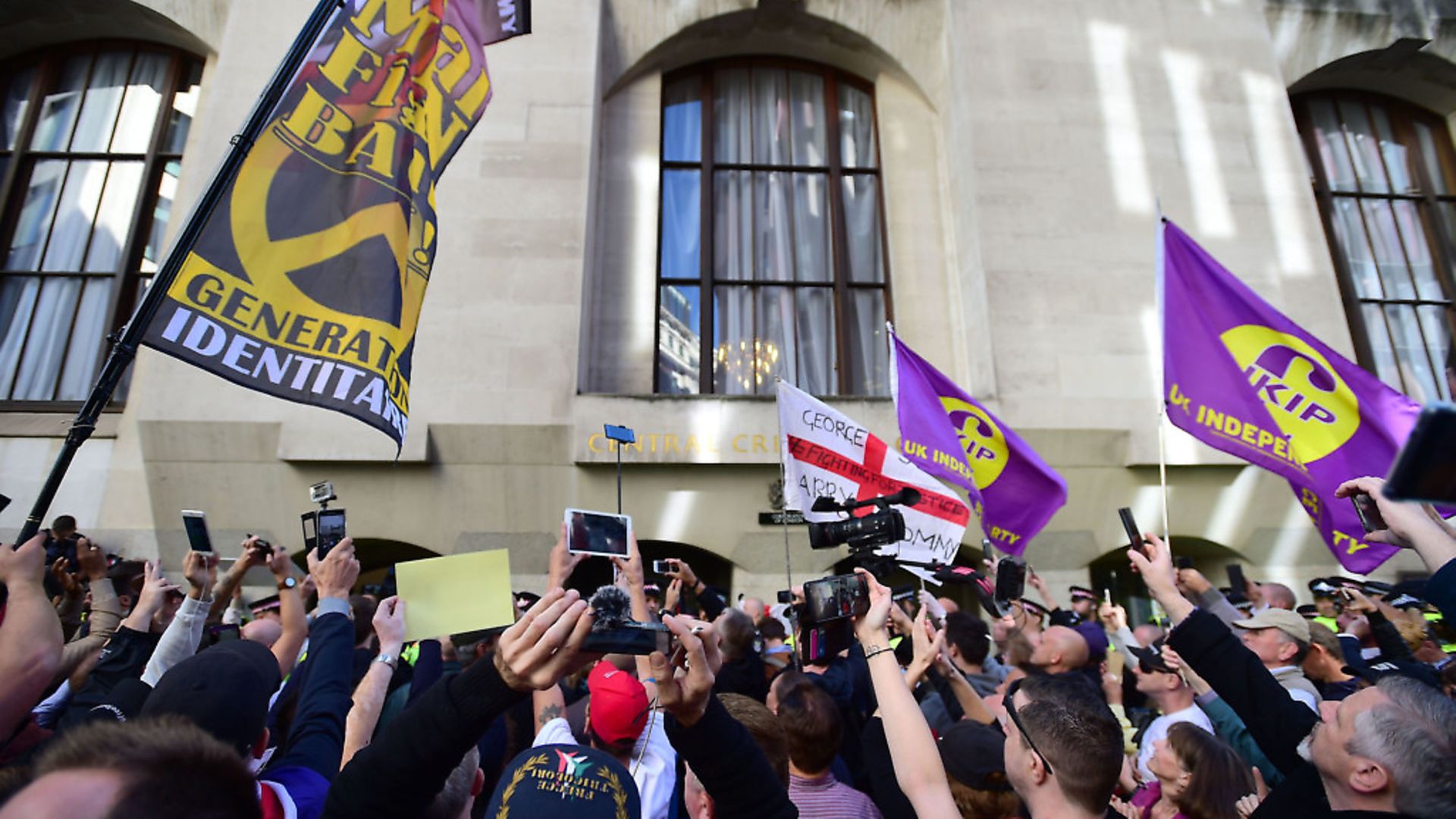
A survey has found that 69% of Britons believe the country has got angrier since the EU referendum with one in six claiming to have fallen out with family and friends over Brexit, according to new research.
Since the vote to leave the EU, four in 10 Britons think that other people are more likely to take part in violent protest, according to an annual Trust Barometer produced by communications firm Edelman.
Six in 10 of those questioned said that the government does not listen to people like them, and the figure was similar among both Leave and Remain voters.
Edelman’s UK and Ireland chief executive Ed Williams said the findings revealed a ‘Disunited Kingdom’ where much of society feels ignored and abandoned by its political class, with Brexit at the heart of the division.
The survey of around 2,000 individuals found a decline in trust in the leaders of both major parties. Only 35% said they trusted prime minister Theresa May to do the right thing – down from 39% last year – and 26% said the same of Jeremy Corbyn (down from 36%).
Among Conservative supporters trust in May fell 10 points to 68% and among Labour backers trust in Corbyn dropped 12 points to 56%.
Some 61% of those questioned said they did not feel their views were represented in British politics, and the feeling was stronger among those who leant towards Labour (66%) than those with Conservative sympathies (43%).
Seven out of 10 said that life is ‘unfair’, and half said the socio-political system was ‘broken’.
And two-thirds (65%) said that the UK was on the wrong track – with Remainers far more likely (82%) than Leavers (43%) to feel that way.
Some 60% of Conservatives said the UK was heading in the right direction, against just 20% of Labour-leaning respondents.
The survey revealed that trust in Britain’s institutions was far higher (64%) among individuals identified as being ‘informed’ – people with college-level education, relatively high-income jobs and regular consumption of news and business media – than among the rest of the population (40%).
MORE: Anna Soubry slams ‘Brexit bullies’ that tried to drown out her speech
MORE: ‘You should be gunned down’ – Threat to Labour MP over Brexit
MORE: Restaurant receives hate mail after adding anti-Brexit message to bills
The 24-point gap was the highest recorded by the annual survey.
Nearly a third (29%) of those questioned said they had followed political news more since the EU referendum. Nearly a quarter (23%) said they were more vocal about politics.
Although 59% said they were fed up of hearing about Brexit, more than a third (35%) said they were reading, watching or listening to more news.
Asked which institutions were the most ‘broken’, 44% of us chose government, compared with just 8% for the media, 4% for business and 4% for NGOs (non-governmental organisations).
Those surveyed were split on whether business was working in a way that was good for Britain, with 48% saying yes and 52% no.
But three-quarters trusted their own employer to do the right thing, and more than three-quarters said chief executives should take a lead in bringing about change in areas such as equal pay, tackling discrimination and training for the jobs of the future.
Williams said: ‘We are a Disunited Kingdom – a country that is seen as increasingly unfair, less tolerant and headed in the wrong direction.
‘Brexit has exposed fractures that have split families and divided friends, made us meaner and angrier as a society, and stoked fears of violent protest and civil disorder.
‘The divisions exposed by our decision to leave the European Union are not binary. They are far more complex.
‘But the consequences are clear – as a country we see our politicians and our political leaders as out of touch, and we lack faith in their ability to heal the divide. Instead we are looking increasingly to business and to our employers to lead and to act with social purpose.’
Warning: Illegal string offset 'link_id' in /mnt/storage/stage/www/wp-includes/bookmark.php on line 357
Notice: Trying to get property 'link_id' of non-object in /mnt/storage/stage/www/wp-includes/bookmark.php on line 37






